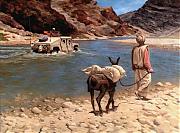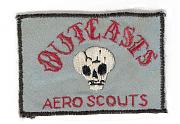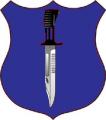The bigger question is, are we willing to substitute U.S. Government in most of the areas where Ucko filled in the question with “DoD” or “U.S. Military”. Ucko makes the case up front that our strategic culture produced a military which lived up to how it saw its role as a military, but that only apportions part of the responsibility – the part LTC Paul Yingling brought up in a “Failure in Generalship” – the part that requires military leaders to look out beyond our biases and sometimes parochial interests to the security threats that face the United States and challenge the civilian leaders who determine the political objectives.
I don’t think you can put the full responsibility on the U.S. military though, I think a significant part of the responsibility should and must rest upon past, current and future political leadership to determine what role it’s military will play in meeting security challenges as an instrument of policy. It is our elected leadership which determines what tools it will use to achieve its policy objectives, and how it addresses reason and passion – it was the former Secretary of Defense Donald Rumsfeld that said “You go to war with the military you have”. That is not a dig at the former secretary, his statement is accurate – when the decision is made to go to war, and the tools you have resourced and cultivated are the means by which you can determine ways to the end. That blame goes back further then Sec Rumsfeld's watch.
Colin Gray has an interesting chapter in War, Peace and International Relations: An Introduction to Strategic History. In Ch. 16 Gray explores the “Inter-War period” between the collapse of the Soviet Union (Cold War) and 9/11(GWOT/Long War). Gray spends the chapter thinking about lost strategic opportunities and failures to consider what would fill the vacuum during that decade, and the types of security challenges that would emerge. I think it is an important observation by Gray, because it cuts to the chase on Civ-Mil relations, and also raises the role of politics, parochialism and lobbyists in providing the most basic function to which government is charged, and held in legitimacy – the provision of security.
Given that we spent the second half of the century preparing for a war which never came, but one which if it would have could have been existential in the extreme, how did that affect our strategic outlook? How strategically important was Vietnam in comparison to our commitment to NATO (when it was really an alliance meant to preserve territorial integrity of Western Europe)? How did the combinations of politics and experiences that not only formed many of our pre 9/11 flag officers, but also many of those serving as senior political appointees then and today create and facilitate a failure to understand what changed and lead the adaptation of our government to meet those challenges?
Ucko examines the role of DoD in adapting to the current challenges, but as I said up front, I think you have to look beyond DoD, because we already know that given the nature of this threat, our competing FP objectives elsewhere and our U.S. strategic culture in terms of the ways which are acceptable to us, that the use military force has limitations. Military force has a role to play in providing security, but ultimately (and I’ll steal from Dave Kilcullen here) counter-insurgency might usefully be thought of as “counter-war” because sooner or later to make good on the gains improved security has bought, the effort must transition to establish the political and/or economic conditions which made the insurgency viable in the first place.
To do that I think the government and the people who elected it must be convinced of the nature of the threat, and must understand how it affects them – this does not mean it must be blown out of proportion, just that Americans must understand that its political leaders believe that the most pressing and legitimate threat we face is not the same thing it was prior to 9/11 and the consequences for ignoring that threat are such that the expenditure of U.S. blood and treasure are worth the price. This is a tall order because there are years of bias built up as to what a threat is and what role we should play unilaterally or multilaterally. Elected officials must either articulate or facilitate the articulation of causality in such a manner that it is credible, e.g. “we are investing in Columbia’s (or Iraq’s, or Africa’s, or Lebanon’s, etc.) security because….”.
Elected officials must know the risk associated with retooling our government (to include its military) to meet one set of security challenges, while not being optimized for others. This does not absolve elected officials from continuing to reassess risk, and forecasting change – e.g. if a near peer competitor shows indications of becoming a near peer threat, then our focus must change in time to first deter that threat, then accommodate the enduring existence or defeat of that threat. That is the role and responsibility of government; it should not be complacent and stagnant because it fears something ambiguous on the horizon while ignoring the present one that has defined itself. When there are multiple threats, the leadership must distinguish between most dangerous and most likely – that is what they get elected and paid to do, there is plenty of blame to go around.
Our military should not be seen independent of the context of the government to which it serves, to do so would negate the role political leadership should play in determining what its military is capable of doing as an instrument of national power. I’m not absolving military leadership, certainly it has a strong role to play in informing our civilian leadership of risk and capabilities, advantages and disadvantages, opportunities for us and for our enemies, but the decision to accept risk by large scale transformation, and the decision when and to what proportion military force will be used must be made by the elected leadership. That I think addresses the conceptual challenges associated with how our military responds to changes in the environment, but its also worth considering the challenges of large scale change when a decision has been made. I’m not sure right now if we could do much more then what is currently being done, or if doing some things for the sake of acknowledging a need for greater change is really in our best interest. Consider just how much of the overall ground force structure is engaged in Iraq and Afghanistan? Consider how much of the Air force and Navy are engaged in other areas around the world? How important is it to make choices about doing things fast vs. doing things right? These are all hard calls and sometimes the question is “How bad do you want it?”, and the corresponding answer is “If you want it real bad, that is how you’ll get it.”
Ucko’s article is worth reading, but I think the question is too important just to make it a military one? There are both some capabilities and capacities missing in the tool bag, and it is going to take awhile to develop them. It could be argued we should have been developing them based off the anticipation of what would happen when the Soviets collapsed, and then we could have implemented the change – a holistic national strategy for the post Cold War that redefined some priorities, and built capabilities and capacities where they would be needed vs. where they were needed. Instead, when the question presented itself we made a deal, and went for the easy money and it would appear we did not even seriously consider what was behind the doors. It was both politically and culturally amenable to do so; we called it a peace dividend and thought nobody would bother us as we moved about the world. As long as a state or a nation wishes to retain its freedoms and standards it must stay smartly engaged, we should not elect leaders to take breaks and tell us we’re great, we should not allow them to abdicate those responsibilities and authorities which define the position to which they were elected; we should elect them to retain our advantages, secure our blessings and if possible extend them.
Best, Rob






 , who will have to take the ball and run with it.
, who will have to take the ball and run with it.

 ).
).








Bookmarks